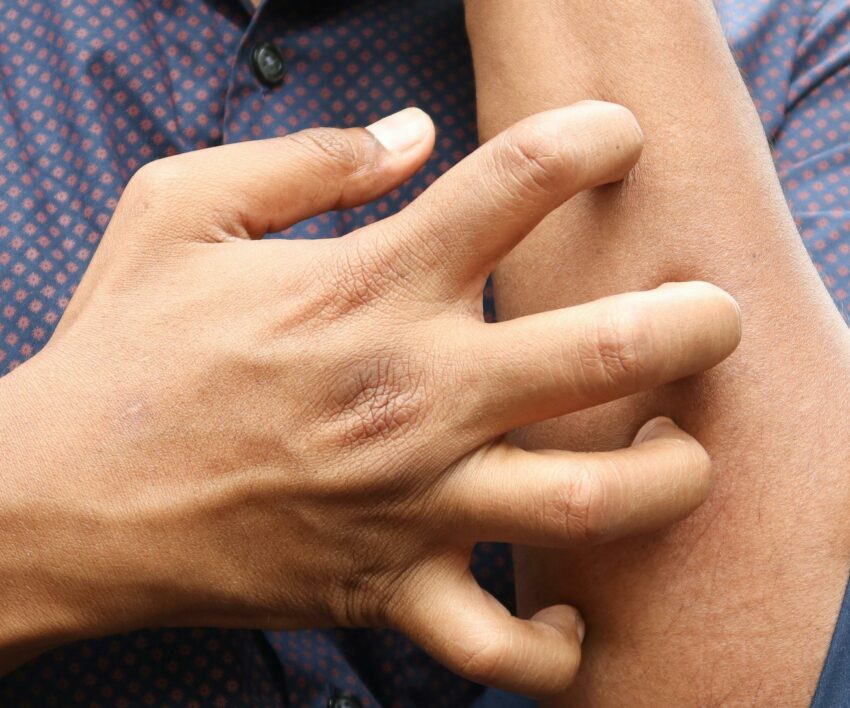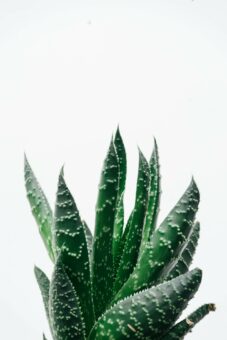
Summer heat can be an instigator for eczema and psoriasis flare-ups – two common skin conditions that cause discomfort, itching, and inflammation. While medical treatments are often necessary for severe cases, many people find relief with simple, natural remedies that can be done at home.
Let’s try the holistic route – here are five effective at-home treatments to soothe your skin and improve its condition.
Sooth your skin
Moisturise regularly with natural emollients
Keeping your skin hydrated is crucial for managing both eczema and psoriasis. Opt for natural, fragrance-free moisturisers to lock in moisture without irritating sensitive skin. Your trusted friend, coconut oil, boasts anti-inflammatory and antimicrobial properties that make it an excellent choice for soothing irritated skin. Apply it directly after bathing to seal in moisture. Shea butter is another unsung hero due to its richness in fatty acids and vitamins, shea butter can provide deep hydration without clogging pores.
Pro tip: Apply a thick layer of moisturiser immediately after a lukewarm shower or bath to maximise absorption.
Oatmeal baths
An oatmeal bath is a time-tested remedy for itchy, inflamed skin. Oats contain anti-inflammatory and soothing compounds that can reduce redness and irritation.
Grind 1 cup of plain oatmeal into a fine powder and mix it into a lukewarm bath. Soak for 15-20 minutes. Pat your skin dry gently afterwards. This treatment is particularly helpful for flare-ups, as it calms the skin and restores its natural barrier.
Aloe vera gel
Aloe vera is a powerhouse of hydration and healing, making it a go-to remedy for eczema and psoriasis.
Aloe vera contains polysaccharides and vitamins that promote skin repair and reduce inflammation. Apply pure aloe vera gel directly to affected areas 2-3 times daily. If you don’t have a plant, look for store-bought gels with no added fragrances or alcohol.
Pro tip: Aloe vera is also cooling, which can help with the itching.

Apple cider vinegar (ACV) for itch relief
Apple cider vinegar has antimicrobial properties that may help reduce itching and flaking associated with these conditions.
Dilute 1 part ACV with 3 parts water and apply it with a cotton ball to the affected areas. For widespread irritation, you can add 1 cup of ACV to a lukewarm bath.
Pro tip: Avoid using ACV on cracked or open skin, as it may cause stinging.
Turmeric paste or tea
Turmeric’s anti-inflammatory and antioxidant properties make it an excellent choice for managing skin conditions.
For topical use, mix turmeric powder with water or coconut oil to create a paste. Apply it to inflamed areas for 10-15 minutes before rinsing. For internal benefits, drink turmeric tea or add it to your meals to reduce inflammation from the inside out.
Pro tip: Use caution when applying turmeric topically, as it can stain clothing and skin.
Tricks of the trade
- Avoid triggers: Identify and avoid potential triggers like allergens, harsh soaps, and stress.
- Stay consistent: Natural remedies often take time to show results, so stick with them consistently.
- Consult a dermatologist: If symptoms persist or worsen, consult a healthcare provider for specialised treatment options.
First published on: Woman and Home
Compiled by: Amy Steenkamp
Also see: Beer is the new wine: The Beer Association of South Africa wants in on fine dining




